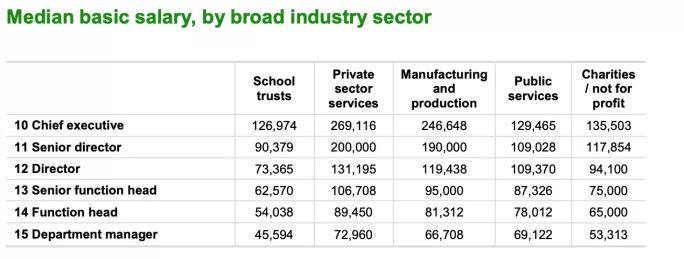Revealed: What academy trusts pay chief executives

The average pay for chief executives of multi-academy trusts is more than £130,000 a year, while men earn more than women across a range of school leadership roles.
These were the key findings from a new report today by the Confederation of School Trusts (CST) based on survey responses on pay from more than 1,000 senior and middle leader academy staff, including 126 chief executives.
The CST has produced the report alongside a new benchmarking tool to help academy trusts make decisions on senior pay.
Executive pay: MAT pays two staff more than £750K in wages
Revealed: The latest salaries of some of the country’s biggest multi-academy trusts
Background: School leader earns almost double the prime minister’s salary
The move comes after a period of controversy over the top end of senior leader pay in the academies sector, where there are now at least seven people paid more than £250,000.
What’s the average pay of academy trust CEOs?
The CST survey also reveals that the average salary of a trust chief executive was £132,285, while the median salary for CEOs was £126,974.
But for male chief executives, the median figure was £135,000, compared with £120,000 for female CEOs.
Overall, the research shows that female CEOs in the survey earned 88.9 per cent of the salary of male CEOs.
The report also reveals a pay gap between London and the South East and the rest of the country, with the median chief executive salary at £131,948 in London and the South East, compared with £121,912 elsewhere in the country.
The gender pay gap in senior roles
The gender pay gap is also apparent in other senior roles within trusts.
The report shows that the median salary for male senior directors or executive headteachers was £98,026, compared with £82,719 for women. It adds that women at this level earn 84 per cent of the salary of their male counterparts.
It also reveals that the median salary for male directors was £79,958, compared with a median salary of £70,745 for women at the same level.
However, when the CST compared responses for people described as “function heads” - those who head up a functional area of an organisation - the gender gap almost closed.
The figures show that the median salary for men in these positions was £54,091, compared with £53,589 for women at this level.
The new report also compares trust chief executive pay with that of leaders in other sectors - showing that they earn less than their equivalents in private sector services but slightly more than those in other public service leadership roles.

The CST has launched its benchmarking service on pay with the companies XpertHR, Cendex and Browne Jacobson.
CST said the tool “includes granular data across the number of employees and pupils on roll within a trust, and areas such as religious character, region, comparisons of part-time and full-time staff and summaries of pension provision and contribution and health benefits, among other things.”
CST chief executive Leora Cruddas said: “We are delighted to know this benchmarking service is now available to support school trust boards make evidence-informed decisions on remuneration.
“Without comprehensive and representative data, it is increasingly difficult to understand and benchmark the remuneration of different levels of executive roles in the school trust sector.
“I am particularly pleased to note that average rates of school trust CEO pay compared to other relevant industry sectors demonstrates clearly that pay in the school trust sector is not disproportionate. In fact, pay in the school trust sector is comparatively lower than other industry sectors, particularly taking into account the level of accountability for school trust CEOs.”
Emma Hughes, head of HR services at Browne Jacobson LLP, said: “This benchmarking survey is a really important step for the education sector and provides boards with added confidence and accountability for the decisions they will need to make on executive salaries.
“It is a core governance duty for boards to make fair, robust and evidence-based decisions about pay and rewards.
“Salary benchmarking data is a clear aspect of meeting that expectation, so the rationale for boards to include it in their formal executive salary decision making is clear.”
Register with Tes and you can read two free articles every month plus you'll have access to our range of award-winning newsletters.
Keep reading with our special offer!
You’ve reached your limit of free articles this month.
- Unlimited access to all Tes magazine content
- Save your favourite articles and gift them to your colleagues
- Exclusive subscriber-only stories
- Over 200,000 archived articles
- Unlimited access to all Tes magazine content
- Save your favourite articles and gift them to your colleagues
- Exclusive subscriber-only stories
- Over 200,000 archived articles
topics in this article



